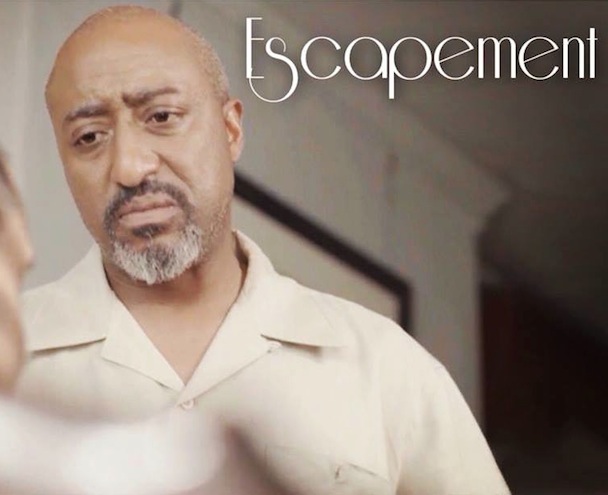Film Review: A Much Too Predictable “Escapement”
Even given the over-the-top wish-fullfillment of the film’s plot, Escapement’s weak dialogue and lack of subtlety proves to be its ultimate undoing.
Boston Area Film Schedules – What is playing today, Where and When
By Paul Dervis
The Roxbury International Film Festival continues tomorrow night with a locally made piece, Escapement. (The documentary ANITA: Speaking Truth to Power will also be screened. This film from Academy award-winning director Freida Mock looks back on the events of 22 years ago, when Clarence Thomas was nominated for the Supreme Court and Hill was called into the Senate hearings. Tim Jackson’s Arts Fuse review here.) Escapement‘s storyline has plenty of potential for depth, but the filmmakers pass up the movie’s promising possibilities in order to deliver a disappointingly simple and sentimental yarn about the African-American community. Director Jae Williams goes for the obvious rather than the complex, so the audience is left with a film that they have seen many times before.
Escapement follows Brandon, a conscientious young man living with his single mother, who is struggling to make ends meet. In the opening scene, Brandon walks into his house, which is a mess, dirty dishes piling up in the sink, clothes strewn about, and his mom asleep. She suffers from persistent headaches and has just lost her job. They may need to move into a shelter for a while. But Brandon won’t hear of it. He puts on a dress shirt and tie and goes out looking for work.
While searching for employment in one of the tougher neighbourhoods of Boston, Brandon is jumped by a street gang, but he is saved when an adult driving by stops his car, gets out, and chases the thugs away with a gun. This man, Jasper, asks Brandon what he is doing in this rough part of town. When he finds out the youth is looking for work, Brandon offers him an opportunity to be a busboy and dishwasher at his nightclub. Brandon has too much pride do that kind of work, claiming he would rather clerk at a sneaker store. Jasper gives him his card anyway and, of course, Brandon calls later asking for the job.
At this point, the film takes on a fairytale-like aura. It is hard enough to believe that a man, who is just passing by, saves our protagonist from a mugging and then offers him employment. But that is nothing compared to what happens next. Brandon works one night at the club busing tables and when he’s alone after hours he sits at the piano and plays. Jasper hears him and hires him to be in the house band. No audition. No playing with other band members. And no mention of the regular club pianist. Our hero now has a great gig!
Oh yes, and while he was playing a crackhead comes into the club. Jasper clearly knows the addict and chases him away, telling Brandon to never talk to him again.
When Brandon’s mother finds out he’s working as a piano player in a nightclub she is upset. “You only play piano in church!” she cries. The other music kills people with alcohol, women, and drugs, she explains. But mom cannot dissuade her son from playing at the club.
The film then moves from the miraculous to the maudlin. (SPOILER ALERT) The crackhead we met earlier turns out to be Jasper’s estranged son. But that’s not all. He’s also Brandon’s father, who he was told died when Brandon was a child. This would almost make sense if Jasper hired him knowing he was his grandchild. But he did not. It is as much a surprise to him as it was to Brandon. And, although it is obvious why he abandoned his drug dependent son, why would he not stay in contact with his daughter-in-law and grandchild?
Yet, even given the over-the-top wish-fullfillment of the plot, it is the script’s weak dialogue and lack of subtlety that undoes Escapement. We know that Jasper is sick because during his first scene he coughs uncontrollably. We know that mom is at risk because the pile of dishes sit dirty in the sink. And we know both Jasper and Brandon are jazz buffs because the kid recognizes portraits of Billie Holiday, Louis Armstrong, and Duke Ellington in Jasper’s apartment.
Paul Dervis has been teaching drama in Canada at Algonquin College as well as the theatre conservatory Ottawa School of Speech & Drama for the past 15 years. Previously he ran theatre companies in Boston, New York, and Montreal. He has directed over 150 stage productions, receiving two dozen awards for hs work. Paul has also directed six films, the most recent being 2011’s The Righteous Tithe.


Thanks for your review…I appreciate you taking the time watch the film!